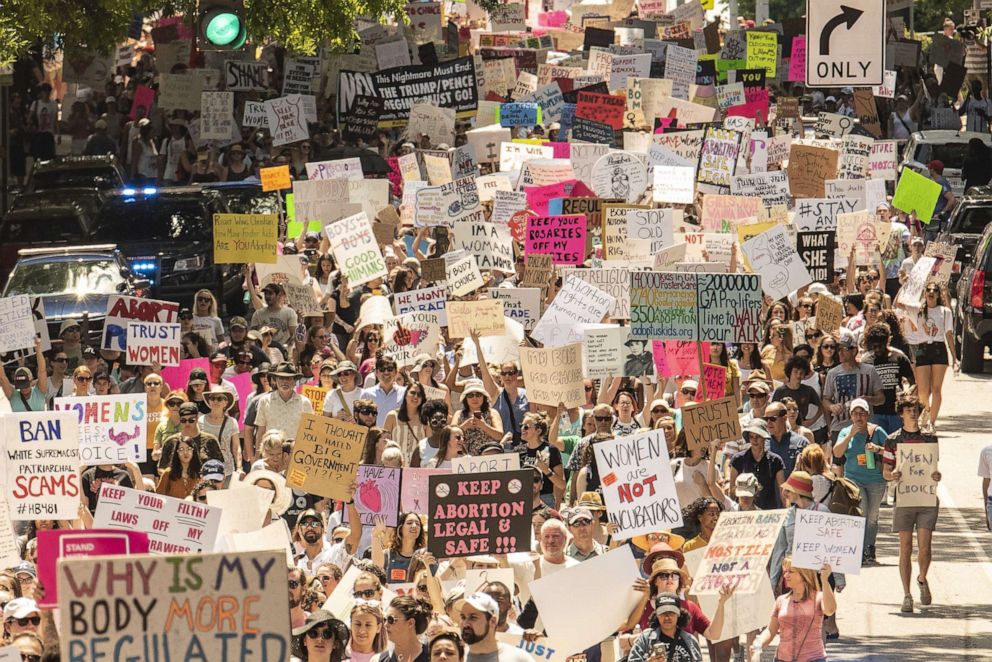Georgia's 6-week abortion ban challenged by reproductive rights groups
The ACLU, Center for Reproductive Rights and Planned Parenthood filed it.
After weeks of public outcry over Georgia's restrictive abortion ban -- including from major Hollywood figures who have brought productions to the state -- reproductive rights organizations filed a legal challenge on Friday.
The challenge to Georgia's so-called "heartbeat" ban, which bans abortions as early as six weeks into a pregnancy, was filed by the American Civil Liberties Union (ACLU), the ACLU of Georgia, the Center for Reproductive Rights and Planned Parenthood. The suit was brought on behalf of a handful of groups, including SisterSong, a reproductive justice group, and the Feminist Women's Health Center, a clinic in Atlanta.
"This law is an affront to the dignity and health of Georgians," the lawsuit, obtained by ABC News, said. "It is in particular an attack on low-income Georgians, Georgians of color, and rural Georgians, who are least able to access medical care and least able to overcome the cruelties of this law. Georgians face a critical shortage of reproductive health care providers, including obstetrician gynecologists, and the rate at which Georgians, particularly Black Georgians, die from pregnancy-related causes is among the highest in the nation."

Georgia was one of several states to pass a so-called "heartbeat" ban this year, along with Kentucky, Mississippi, Louisiana and Ohio. Missouri signed a law including a ban on abortion after eight weeks' pregnancy, including several other stipulations.
Although these laws have been passed, none of them are in effect, due to either legal challenges or delays on when they take effect. Abortion rights organizations have vowed to challenge each of these laws from taking effect.
"I realize that some may challenge it in a court of law, but our job is to do what is right not what is easy," Georgia Gov. Brian Kemp said when he signed the bill into law in May.
Bans on abortion before 20 weeks have consistently been struck down by courts as unconstitutional. In 2016, the Supreme Court declined to review a lower court's ruling that a so-called "heartbeat" abortion ban was unconstitutional, essentially upholding that decision.
"This legislation is blatantly unconstitutional under nearly 50 years of U.S. Supreme Court precedent. Politicians should never second guess women’s health care decisions," Sean J. Young, legal director of the ACLU of Georgia, said in a statement. "Politicians have no business telling women or a couple when to start or expand a family. Our lawsuit asks the court to block the law from taking effect on January 1, 2020."
Several production studios and individual actors indicated they would not film in Georgia if the law goes into effect.
Although celebrities have been critical of similar abortion laws passed around the country, a Hollywood boycott could have particular sway in Georgia, where enticing tax incentives have helped the state develop a booming, multi-billion dollar film industry.
The state's film and TV industry generated a total economic impact of $9.5 billion during the 2018 fiscal year, according to then-Gov. Nathan Deal, with 455 productions shot in the state representing $2.7 billion in direct spending.
ABC News' Whitney Lloyd contributed to this report.




